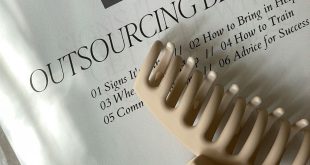It’s easy to take for granted just how amazing it is to hear birds, listen to our favorite songs, and to hear our children laugh. That is until something goes wrong and your hearing has been compromised. Though hearing loss is a common side-effect of aging, it can affect anyone at any time. This is a friendly reminder to, at least, consider your hearing and ear health. Here are some effective ways to protect your ears.
Turn Down the Volume
If you’re working up a sweat, or you’re on a busy, noisy train, it can be tempting to crank up the volume on your phone or music player. And, while listening to loud music occasionally won’t damage your hearing in the long-term, being exposed to high levels of noise on a regular basis will take its toll.
If you listen to music on your way to work every morning, for example, make sure you set the volume at a level that is acceptable. Prolonged or repeated exposure to noise levels over 85 decibels can increase the risk of hearing loss. If your job involves working in noisy environments or you use tools or equipment that generate high levels of noise, it’s crucial to wear earplugs or ear defenders.
Report Hearing Changes to Your Doctor
If you notice any changes in your hearing, it’s crucial to consult with your physician. Some things to pay attention to are turning the volume up on the TV all the time and struggling to hear colleagues properly in meetings. Perhaps you’re finding it harder to talk on the phone or feel like people are mumbling or talking quietly.
All of these signs could be linked to hearing loss. A hearing assessment is designed to provide detailed information about your hearing and can flag early signs of deterioration. If you are finding it hard to hear, you might be worried or anxious about the results of your test, but there are solutions available. Today, you can get amazing devices like rechargeable hearing aids that help you to hear better and improve your confidence. Hearing loss tends to be slow and gradual, so having regular tests can help to pick up issues early.
Avoid Invasive DIY Ear Cleaning
Your ears are incredibly sophisticated, and they have their own self-cleaning mechanism. Wax is produced by the body to prevent debris from reaching the inner ear. In most cases, the ears remove excess wax (known as cerumen) without the need for external assistance. Some people are more prone to wax build-up than others.
If you suspect that your ears are blocked, avoid trying to clean your ears using foreign objects, such as cotton swabs. Inserting objects into the ear canal can do more harm than good, as it can push the wax deeper inside. However, it is safe to wipe the outside of your ears using a soft damp cloth to collect earwax from the entry to the ear canal. If you’re worried about earwax, or you have pain in your ears, consult your doctor.
Hearing loss may be a natural side-effect of aging, but there are steps you can take to protect your ears and lower the risk of hearing problems.
**** This post is strictly informational and is not meant to replace the advice of your healthcare provider. Women’s lifelink, it’s owners, administrators, contributors, affiliates, vendors, authors, and editors do not claim that this information will diagnose, treat, or improve any condition or disease.
 Women's Life Link Be Well, Be Happy, Be YOU!
Women's Life Link Be Well, Be Happy, Be YOU!








